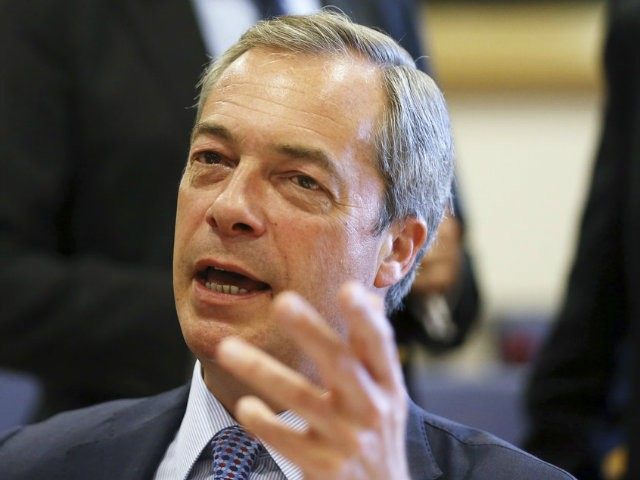About 15 years ago, I was giving a speech at my father’s 65th birthday party.
There were seventy or eighty people at the dinner and, as my Dad is a playwright, most of them were theatricals.
I’m a comedian, it was a fun occasion, so I wanted the speech to be funny. There were a few entertainment VIPs in the room, so there were professional as well as personal reasons to make sure my speech was as good as possible.
But it was also a very personal occasion – a landmark in my dad’s life – so there was no way I was just going to do bits from my act. I wanted the speech to be special. I love my Dad very much and I wanted to say so publicly. But I also didn’t want the speech to descend into a gushing, sentimental, embarrassing ‘Dad, I love you’ affair. It was by no means the hardest speech I’ve had to give, but there was still a balance that I had to get right.
As I was talking, and I guess I was feeling a little nervous, I noticed someone looking at me. Of course, the whole room was looking at me, but this was the only person I noticed. He had friendly blue eyes, narrowed in a frown of intense concentration, and he seemed deeply interested in what I had to say. I don’t know if I was projecting my own imagination, but there was a wise, kindly look to him. I’d never noticed anybody listen like that before.
It was a few moments before I realised it was the actor, Timothy West.
Thinking about it later, it made sense to me why Timothy West had been such a successful actor. He listened so well. In a room of eighty people all doing the same thing– his was the listening I noticed.
Fifteen years later, I noticed somebody else who had that same look.
My first book, Life After The State, has nothing to do with comedy. It’s a book about finance, economics, social systems and where I think they’ve gone wrong. It was the culmination of seven year fascination with the subject that began around 2006.
On the day it was published I was invited onto Radio 4’s Today programme to talk about the role of the state. My publisher, Dan Kieran of Unbound, told me ‘getting on the today programme is the Holy Grail’ for an author. I was very lucky. I would be going on the show at peak listening time, just before 9. ‘Everybody will be listening,’ Dan told me. ‘The prime minister will be listening’.
To say I was nervous is an understatement. ‘This is the Today programme,’ I told myself. ‘For really clever people. Not for the likes of you. It’s the BBC, the Ministry of Media. The last thing they’ll suffer is some non-economist comedian calling for a smaller state. You are so going to be found out.’
In the Green Room beforehand, I could barely speak.
‘Would you like a cup of coffee?’
‘Oh, no thanks. Actually, yes please. Er no, no. Actually, yes. Erm, not sure.’
‘I’m sorry?’
I was to be interviewed by James Naughtie and there was a nice chap by the name of Neal Lawson from left-wing think tank, Compass, who would take the opposing side of the debate.
There were various other people in the studio, all deep in notes and preparation for their next slot. None of them looked up as we came in. And so our slot began.
If I had my life again I’d answer my first question differently, but overall I did ok. However, mid-interview, while I was talking, I could feel somebody looking at me. I looked to my left, away from the people I Naughtie and Lawson, and there, staring at me intently, was John Humphrys. He’d looked up from me his notes and, with his eyes narrowed slightly, now seemed to be deeply interested in what I was saying. His listening carried that same mixture of interest, intent focus, kindness and understanding that Timothy West’s did all those years ago.
Just as with West, I felt I gained some understanding as to why John Humphrys has been so successful in his extremely competitive profession.
Keynote Farage
Just a few months later I was speaking about gold at an investor’s show. Tom Winnifrith, the organizer, had managed to get Nigel Farage as his keynote speaker.
Afterwards, the great Nigel and I sat down and started talking. All sorts of people were bombarding him for photos and signatures, and he was very gracious to everybody who pestered him, but he only seemed interested in talking to me. And, as I talked, there was that same look again – eyes narrowed slightly, kind, wise, interested, focused on you and you alone.
If you say the names John Humphrys or Nigel Farage, kindness is not the first word that springs to mind with either. But that was what I saw. Nor is Farage known as great listener, but my experience was that he is.
I met David Cameron at a party once, while he was leader of the opposition. He was very nice. He had the charisma of one of the cool kids in the corner. But he didn’t have that look. I’ve never met David Milliband, but I’d wager that he doesn’t either.
I’m not quite sure what conclusion to draw from this. I guess it’s that Farage in person is extremely winning, a far cry from the monster that the Trots who write for the Guardian have made him out to be. It’s also that, come election time, his charisma should not be underestimated.
Dominic Frisby is a comedian and the author of two books, Life After The State and Bitcoin: the Future of Money.

COMMENTS
Please let us know if you're having issues with commenting.